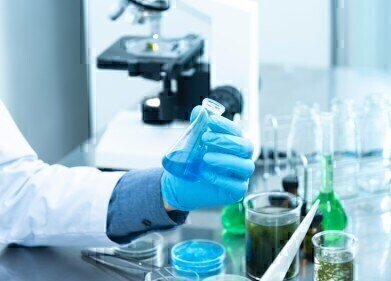Soil Remediation
Could This Tropical Plant Help Tackle Water Pollution?
Jul 01 2016
Due to growing industry around the world over the past few centuries, toxins, chemicals and trace heavy metals have been creeping into waterways and soils in ever-increasing amounts. Over time, the accumulation of these heavy metals and the other contaminants can severely damage human health if consumed.
While techniques to cleanse drinking water of these unwanted pollutants do exist and are effective, they can often be too expensive and impractical for places where clean drinking water is most a concern – the developing world. Professor Gustavo Ferreira Coelho from Brazil believes he may have developed a natural way to rid water of these contaminants at a fraction of the cost.
Biosorption cheaper than existing methods
Traditionally, water treatment facilities have removed unwanted toxins with the use of activated carbons, ion-exchange resins or other sophisticated technology. While these methods are generally very effective, they are simply too expensive to be implemented in many places where they are most needed. For example, heavy metal pollution in the developing state of Perlis in Malaysia is an increasing concern, but the economy and infrastructure there will not allow for such complicated processes.
In an effort to find sustainable and workable alternatives, much research has been poured into biosorption. This natural process uses the biological capabilities of plants to suck up harmful contaminants, thus removing them safely and effectively.
In fact, a couple of years ago onion and garlic were being touted as low-cost ways to clean up toxic waste. The latest research from the University Centre Dynamic of Cataracts in Parana, Brazil, develops a similar methodology using a plant named Jatropha curcas.
Jatropha curcas to the rescue
The increased use of certain fertilisers has led to a growing amount of heavy metals in soil, such as aluminium, arsenic, copper and zinc (among others). This metal presence can lead to water pollution, which in turn can cause a myriad of health problems including hypertension, kidney failure and skin aggravations.
Jatropha curcas is a perennially-flowering plant which flourishes in tropical conditions, making it an ideal choice for somewhere like Malaysia. It has already been hailed as a potential source of biofuel, and thanks to Professor Coelho’s research, it looks like it could provide another invaluable benefit in the shape of biosorption, too.
Coelho and his team used the seeds of the plant to obtain three kinds of adsorbents. By trying out a number of different climatic and habitat conditions on the adsorbents and determining how this affected their ability to adsorb the heavy metals, they were able to determine the optimum conditions for use in the field.
Professor Coelho is optimistic that the substance can provide a cheap, naturally-occurring and sustainable alternative to the more expensive and time-consuming methods currently deployed. This would allow water to be safely treated in remote and impoverished areas, thus granting everyone all over the world access to clean drinking water.
Events
Apr 22 2024 Hannover, Germany
Apr 23 2024 Kuala Lumpur, Malaysia
Apr 24 2024 Sao Paulo, Brasil
May 05 2024 Seville, Spain
May 13 2024 Munich, Germany













